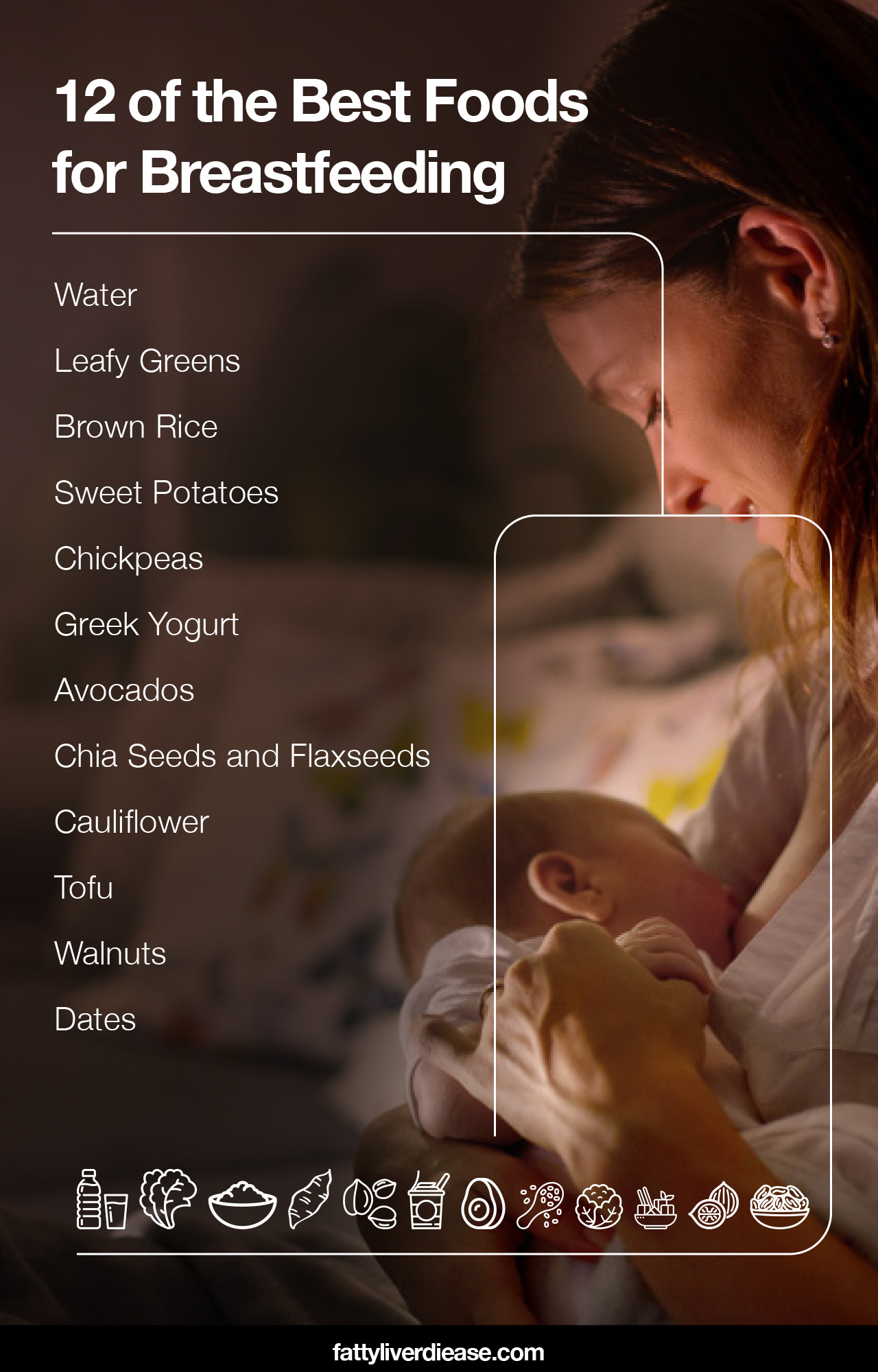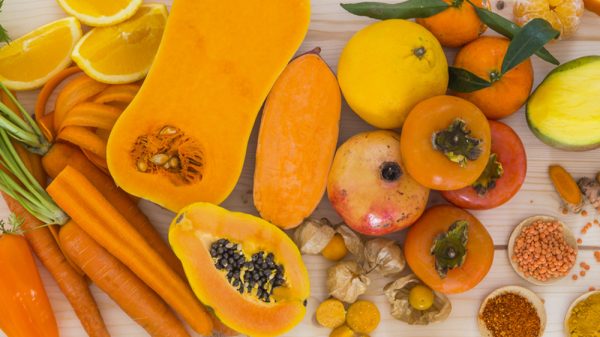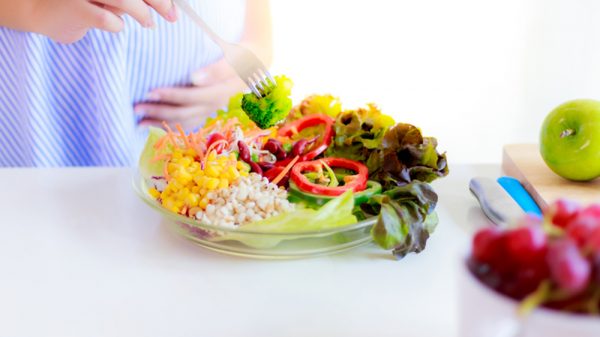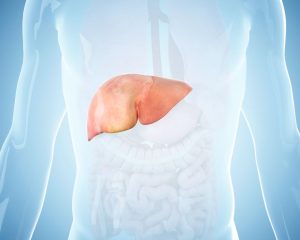After you’ve gone through pregnancy and birth, your body’s work is still not complete. During breastfeeding, the body must work hard to produce breast milk to nourish your growing baby. All of the food you eat is transformed by your body into breastmilk, to give your baby the nutrients he or she needs.
Breastfeeding moms often wonder what their diet should look like. Here we go through 12 of the best foods for breastfeeding, as well as extra tips for ensuring that your breastfed baby is healthy and happy.
1. Water
Though technically a drink and not food, drinking plenty of water is critical for breast milk production. Breast milk is rich in nutrients, but it is mainly water! While breastfeeding, you should stay adequately hydrated to keep up with your body’s demands as it produces nourishment for your baby. If you don’t drink enough water, you may notice that you have a low milk supply. So, to keep your milk supply high, make sure you drink plenty of water on a daily basis.
2. Leafy Greens
Leafy greens are superfoods that contain tons of antioxidants, vitamins, minerals, and fiber that promote the health of nursing mothers and their babies. Plus, leafy greens like kale, lettuce, spinach, and arugula also contain galactagogues, which are compounds that help boost milk production. Incorporate chopped greens into a salad or prepare a side dish of sauteed greens to go with your meal.
3. Brown Rice
Brown rice is a whole grain that contains protein, vitamins, minerals, and complex carbohydrates. Complex carbs do not spike your blood sugar, and instead, provide a steady source of energy throughout the day. Brown rice can be incorporated into nearly every meal as an addition to salads, a base for soups and stews, and a side dish with lean meats and veggies.
4. Sweet Potatoes
Not only are sweet potatoes tasty but they are also extremely healthy for breastfeeding moms and their babies. Sweet potatoes are packed with nutrients like fiber, vitamin A, and vitamin C, all of which support healthy growth and development.
5. Chickpeas
Chickpeas are packed with protein, fiber, vitamins, and minerals. These nutrient-dense legumes are excellent consumed whole in stews, sprinkled on salads, or pureed into a hummus.
6. Greek Yogurt
Greek yogurt is an excellent source of calcium and complete protein for breastfeeding moms. Protein is vital for breastfeeding moms since your body requires more protein than usual to produce breastmilk to nourish your baby. It’s important to get balanced ratios of essential amino acids from food sources of protein. Dairy products and animal products provide ideal ratios of essential amino acids in any single source, while vegetable proteins must be combined throughout the day. The essential amino acids from the protein that you consume are incorporated into breast milk and support your baby’s growth and development.
Plus, it’s an easy snack to grab out of the fridge and top with crushed walnuts, whole-grain cereal, and fruits like blueberries and sliced banana. When choosing Greek yogurt at the grocery store, go for options that are fortified with vitamin D, and contain very little added sugar and no saturated trans fats.
7. Avocados
Avocados are a great source of healthy fats like polyunsaturated and monounsaturated fats. Avocados are also rich in vitamin C, fiber, and potassium. Avocados are great additions to smoothies and salads or made into guacamole.
8. Chia Seeds and Flaxseeds
Chia seeds and flaxseeds are rich in the plant form of omega-3 fatty acids, known as alpha-linolenic acid. They also contain fiber, antioxidants, and minerals that benefit the health of both you and your baby. Additionally, ground chia seeds and ground flaxseeds can be easily added to cereal, yogurt, soups, and smoothies for added nutritional benefit. Other seeds are also highly beneficial and nutritious during breastfeeding. Try incorporating pumpkin seeds, sesame seeds, and hemp seeds into your diet.
9. Cauliflower
Cauliflower is a tasty veggie that is filled with fiber, B vitamins, vitamin C, and antioxidants, making it an excellent food to eat when breastfeeding. Although cauliflower is sometimes considered to be a gassy food, meaning that it may cause a bit of bloating for the breastfeeding mom, due to the high fiber content. However, this doesn’t mean it will cause an upset tummy for the baby. Enjoy cauliflower raw dipped in hummus, grated to make cauliflower rice, or cooked as a side dish as a part of your favorite meals.
10. Tofu
Tofu is an excellent protein source, especially for vegans and vegetarians who are breastfeeding. Though not a complete protein with optimal ratios of essential amino acids, tofu is a source of plant-based protein that is as close to complete as possible. Tofu in combination with a diet containing whole grains, nuts, and seeds will ensure that you’re getting optimal ratios of essential amino acids.
Tofu is an excellent substitute for meat in soups, stir-fries, and sandwiches.
11. Walnuts
Walnuts are packed with healthy fats as well as antioxidants, vitamins, and minerals. Walnuts make a delicious snack on their own, but they can also be enjoyed on top of salads, oatmeal.
12. Dates
Dates are a delicious, sweet fruit that contains loads of fiber, minerals, and other nutrients that support the health and wellbeing of you and your baby during the breastfeeding period. Plus, dates are a very sweet fruit that can help you satisfy your cravings in a guilt-free way!
Extra Tips for Breastfeeding Diet
In addition to having a list of healthy foods to eat while breastfeeding, it’s also helpful to be equipped with other breastfeeding tips. Here we go through foods to avoid while breastfeeding, caffeine and breastfeeding, and more.
1. Choose Organic Foods When You Can
Remember, your nursing baby eats everything that you do, via breastmilk. So, when possible, it’s important to purchase organic foods. Certain fruits and vegetables are more likely to contain pesticides and chemicals that can turn up in your breastmilk.
2. Keep Healthy Snacks on Hand
Keeping healthy snacks in the house helps keep up your energy levels while curbing your cravings for junk foods. For example, chopped carrots and hummus, whole-grain bread and almond butter, and blueberries with Greek yogurt are a few examples of nutritious staples to have on hand when you need some quick, healthy fuel.
3. Meal Prep When Possible
When you get a little bit of free time to cook, try to meal-prep if possible. This might mean preparing a large pot of stew that you can eat for lunch for the week. Here are a few ideas for preparing easy, healthy meals that you can spread over several days.
- Stew: Preparing a hearty stew with beans and vegetables can ensure that you have dinner for the entire week! You can combine all kinds of veggies and beans like kale, spinach, carrots, tomatoes, celery, sweet potatoes, lentils, and black beans into one stew. Pre-portion your dinners so you can simply heat up and serve over whole grains like brown rice, quinoa, or whole wheat pasta for a nutrient-dense meal that provides everything your baby needs.
- Taco fillings: Tacos are one of the quickest meals that you can make when you’re breastfeeding. Prepare a taco filling using lean ground meat or tofu, sweet potatoes, peppers, chopped kale, and tomatoes. Season as desired, spoon onto a taco shell, and top with sliced avocado and salsa.
- Smoothies: You can prepare bags of chopped fruits and veggies, and store them in the freezer, so you can easily throw them into a smoothie with almond milk or soy milk.
4. Order Groceries
Making it to the grocery store when as a breastfeeding mother trying to take care of a newborn can be a time-consuming hassle. When possible, utilize delivery apps or other services to save yourself the time and inconvenience of trying to get to the grocery store. Plus, delivery apps make it easy to save your orders, so you can place the same orders periodically to stock up on essentials.
5. Don’t Put Too Much Pressure on Yourself
Caring for a newborn is tough, often requiring what feels like your full attention 24 hours a day, 7 days a week. If you can’t make perfect meal choices all of the time, don’t sweat it. As long as your diet is made up of primarily whole foods, you are good to go and your baby will be healthy and well-nourished.
6. Ask for Help
Recovering from birth, breastfeeding, and taking care of a newborn and other children is mentally, emotionally, and physically draining. At times, it will feel downright overwhelming. In addition to getting support from your partner, reach out to trusted loved ones to ask for help and support. Maybe you just need someone to cook a meal or look after the kids while you take a shower or a nap.
If you are experiencing anxiety, panic attacks, mood swings, and other related symptoms, it’s likely that you are suffering from postpartum depression. Reach out to trusted loved ones and seek medical attention as soon as possible. There are successful treatments available for postpartum depression so you can start feeling like yourself again.
7. Enjoy a Varied Diet
Eating a variety of foods is very healthy during pregnancy and breastfeeding.When breastfeeding, different foods in your diet actually flavor your breastmilk. In fact, eating certain foods during pregnancy and breastfeeding may decrease the likelihood of your baby having an allergy or food sensitivity to certain foods. Plus, following a healthy diet during pregnancy and breastfeeding may also increase the chances that your baby will also enjoy a varied, healthy diet in childhood.
8. Limit or Eliminate Caffeine and Alcohol Intake
Recommendations for caffeine intake are similar to those during pregnancy. While you don’t want to go crazy with caffeine while breastfeeding, having a little bit is ok, as long as you don’t overdo it. Drinking tea or coffee while breastfeeding won’t harm your baby, as long as you keep caffeine consumption within the recommended limits.
Can you drink while breastfeeding? Recommendations regarding alcohol intake are less stringent than those during pregnancy. If you choose to drink, it’s important to time your alcohol consumption, so that no trace of alcohol gets into your breastmilk. For example, some women like to have a glass of wine in the evening while the baby is also nursing. By the time any alcohol gets into your system to cause an increase in blood alcohol concentration, the baby will be finished feeding. Alternatively, pump your milk prior to having your glass of wine, and wait until the alcohol has completely cleared from your system before breastfeeding again.
Of course, you should also consume alcohol in moderation while caring for a newborn. However, the best way to be totally safe with alcohol is to simply avoid drinking until after your baby has been weaned off of breastmilk.
9. Monitor Your Baby’s Digestion
If your baby is gassy or is unusually fussy one day, it could be connected to something you’ve eaten. Cow’s milk, broccoli, and certain spices your baby isn’t used to tend may be culprits of digestional discomfort and fussiness.
However, keep in mind that there’s no reason to cut out certain foods unless you are allergic to the food, your baby has reacted negatively to the food, or your doctor has specifically advised against eating a particular food.
10. Be Cautious with Canned Foods
Some cans that are used for food contain bisphenol A, which is a compound that has been connected to negative impacts on the brain and nervous system development. Before purchasing canned goods, make sure to look at the label and search for “BPA-free.” Alternatively, look up the company to make sure they do not use BPA in their canned products.
11. Limit Fish Intake
Experts recommend limiting fish intake because many fish contain chemicals and heavy metals like mercury. In particular, king mackerel and swordfish tend to contain higher levels of mercury. Fish like salmon and sardines are better options that offer high levels of omega-3 fatty acids, though they should still be consumed in moderation.
12. Choose Grass-Fed and Organic Meat
Grass-fed, organic meats tend to be lower in pesticides because the animals are eating cleaner foods. When possible, it’s also important to look for antibiotic-free and hormone-free meats and dairy products, since any intake of antibiotics and hormones makes its way into breast milk.
13. Limit Junk Foods
When breastfeeding and taking care of a newborn, sleep deprivation and constant demands may cause you to reach for easy comfort foods and snack foods. However, most convenient foods are high in added sugars, unhealthy fats, sodium, and extra calories, while also being devoid of essential nutrients.
14. Supplementing When Needed
It is recommended that breastfeeding mothers continue to take a prenatal vitamin or multivitamin while breastfeeding. This is especially important if you follow a plant-based diet or have other dietary restrictions that may increase your risk of having inadequate levels of vitamin B12 and vitamin D. Talk to your doctor about what kind of supplement is best for your health and that of your newborn.
Things to Keep in Mind
When planning the best breastfeeding diet that works for you and your baby, always talk with your doctor and registered dietitian. Avoid starting any new supplements until you talk with your health care provider first. Your physician and nutritionist will provide very important information about what foods to avoid and how to create the best breastfeeding diet that supports your health and your baby’s growth.
Conclusion: Best Foods for Breastfeeding
New moms may find it difficult to know what to eat while breastfeeding. Following a balanced, healthy diet is the core component of a breastfeeding diet. Eating a variety of whole foods including fruits, vegetables, whole grains, nuts, seeds, and lean meats is important for supporting a baby’s growth and development. Plus, eating tons of healthy foods can help improve your energy levels and help you feel your best.
























